
Negombo: The Serene Coastal Retreat of Sri Lanka
Negombo, a charming coastal city in Sri Lanka, offers a perfect blend of rich history, vibrant culture, and stunning natural beauty. Nestled along the western coast, this city is renowned for its golden sandy beaches and turquoise waters, making it an ideal destination for sun-seekers and water enthusiasts alike. The city's history dates back to ancient times, with Portuguese, Dutch, and British influences evident in its architecture and local customs. A visit to the Old Dutch Fort and St. Mary's Church provides a glimpse into Negombo's colonial past. The bustling fish market is another highlight, where you can witness the lively trade and perhaps sample some fresh seafood. Negombo's lagoon and canal network are perfect for boat rides and bird watching, adding to the city's tranquil charm. The Muthurajawela Marsh, a nearby wetland, is a haven for nature lovers, offering guided tours through its rich biodiversity. Wander through local markets to experience the vibrant atmosphere and indulge in authentic Sri Lankan cuisine, from spicy curries to sweet treats. Whether you're looking to relax on the beach, explore historical sites, or immerse yourself in local culture, Negombo has something to offer every traveler. Its warm hospitality and scenic landscapes make it a must-visit destination in Sri Lanka.
Local tips in Negombo
- Visit the fish market early in the morning to see the freshest catches and the lively atmosphere.
- Take a boat ride through the Negombo Lagoon for a serene experience and bird watching opportunities.
- Explore the Old Dutch Fort and St. Mary's Church to appreciate the city's colonial heritage.
- Try the local seafood dishes at beachside restaurants for an authentic culinary experience.
- Hire a bicycle to explore the city and its scenic coastal routes at your own pace.
Negombo: The Serene Coastal Retreat of Sri Lanka
Negombo, a charming coastal city in Sri Lanka, offers a perfect blend of rich history, vibrant culture, and stunning natural beauty. Nestled along the western coast, this city is renowned for its golden sandy beaches and turquoise waters, making it an ideal destination for sun-seekers and water enthusiasts alike. The city's history dates back to ancient times, with Portuguese, Dutch, and British influences evident in its architecture and local customs. A visit to the Old Dutch Fort and St. Mary's Church provides a glimpse into Negombo's colonial past. The bustling fish market is another highlight, where you can witness the lively trade and perhaps sample some fresh seafood. Negombo's lagoon and canal network are perfect for boat rides and bird watching, adding to the city's tranquil charm. The Muthurajawela Marsh, a nearby wetland, is a haven for nature lovers, offering guided tours through its rich biodiversity. Wander through local markets to experience the vibrant atmosphere and indulge in authentic Sri Lankan cuisine, from spicy curries to sweet treats. Whether you're looking to relax on the beach, explore historical sites, or immerse yourself in local culture, Negombo has something to offer every traveler. Its warm hospitality and scenic landscapes make it a must-visit destination in Sri Lanka.
When is the best time to go to Negombo?
Iconic landmarks you can’t miss
Sameeha Family Restaurant
Discover the flavors of Sri Lanka at Sameeha Family Restaurant in Negombo, where delicious food meets a family-friendly atmosphere.
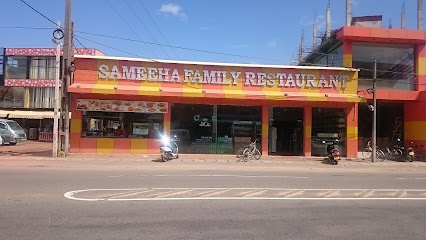
Sentido Heritance Negombo
Discover the luxurious Sentido Heritance Negombo, where stunning ocean views and exceptional service create the perfect tropical getaway in Sri Lanka.
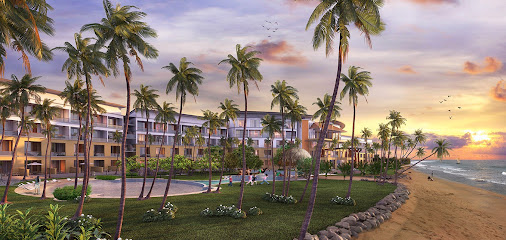
Sasha Food Court
Discover the vibrant flavors of Sri Lanka at Sasha Food Court in Negombo, where culinary diversity creates an unforgettable dining experience.
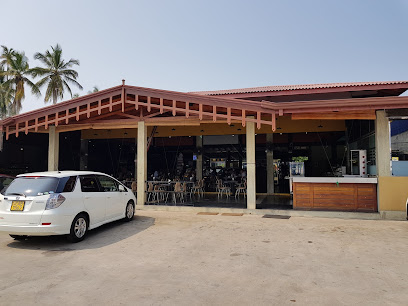
Negombo Beach Park
Discover the charm of Negombo Beach Park, where sun, sea, and vibrant culture come together for an unforgettable experience.
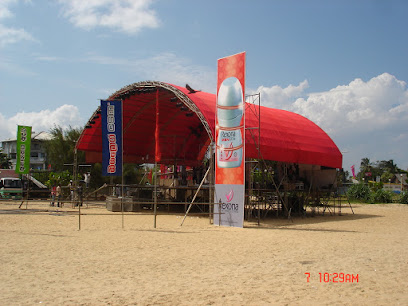
Jetwing Lagoon
Discover the tranquil luxury of Jetwing Lagoon, a premier hotel in Negombo, Sri Lanka, where relaxation meets stunning natural beauty.
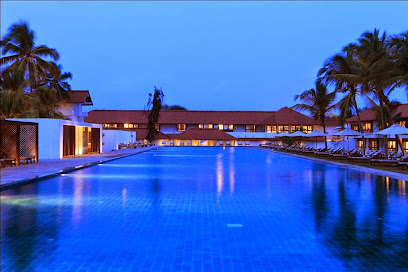
Amagi Aria
Experience luxury and tranquility at Amagi Aria, a premier hotel by Negombo Lagoon, perfect for a memorable Sri Lankan escape.
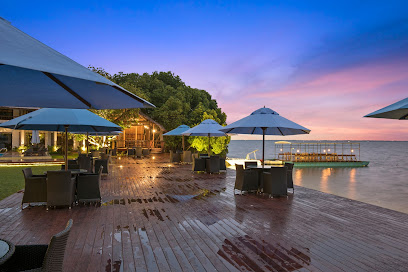
Dinemore - Negombo
Discover the vibrant flavors of fast food at Dinemore, Negombo's go-to spot for delicious meals in a welcoming atmosphere.
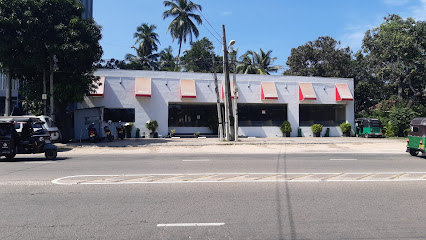
Sriyani Dress Point
Discover the essence of Sri Lankan fashion at Sriyani Dress Point, where traditional elegance meets modern style in the heart of Negombo.
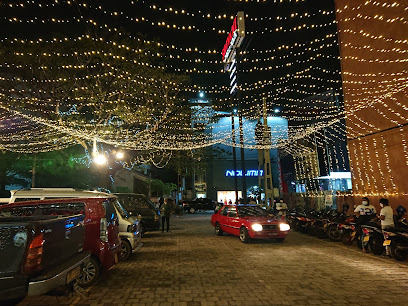
St. Mary's Church
Discover the architectural beauty and rich history of St. Mary's Church in Negombo, a must-see Catholic church and cultural landmark in Sri Lanka.
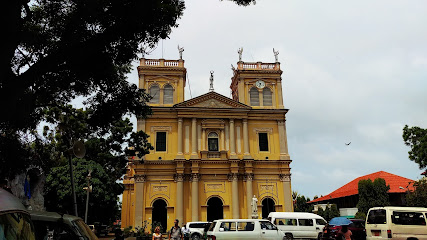
Angurukaramulla Temple (Bodhirajaramaya)
Explore the tranquil beauty and cultural richness of Angurukaramulla Temple, a stunning Buddhist sanctuary in Sri Lanka's Negombomaristhala.
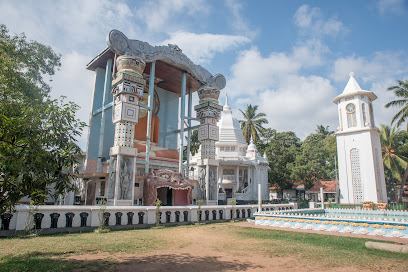
Rukmani Devi Park
Discover tranquility and natural beauty at Rukmani Devi Park, a serene retreat in Negombo perfect for relaxation and leisure activities.
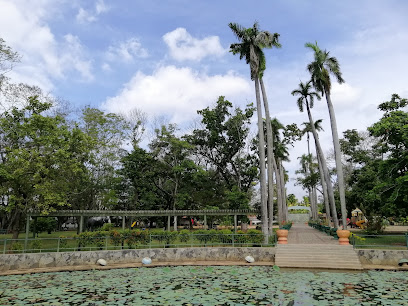
Negombo Bus Terminal/Bus Stand
Discover the vibrant Negombo Bus Terminal, your gateway to exploring the beautiful destinations of Sri Lanka with ease and convenience.
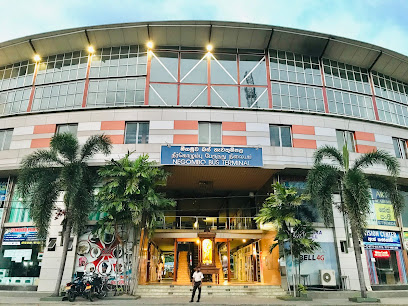
CIB Shopping Center - Negombo
Explore CIB Shopping Center in Negombo for a delightful shopping experience with a mix of local and international brands.
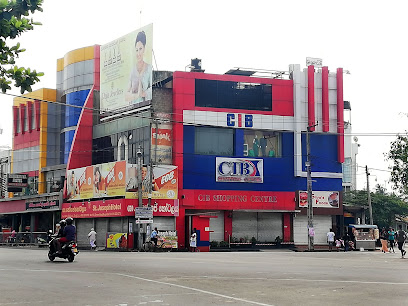
St. Sebastian's Church, Katuwapitiya | සාන්ත සෙබස්තියන් දේවස්ථානය - කටුවාපිටිය
Discover the tranquil beauty of St. Sebastian's Church in Katuwapitiya, a must-visit destination for cultural and spiritual exploration in Negombo, Sri Lanka.
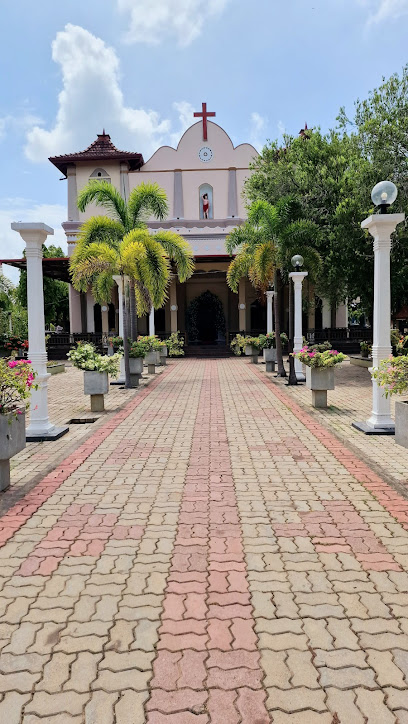
Negombo Railway Station
Explore Negombo Railway Station, your gateway to Sri Lanka's stunning coastline and vibrant local culture, capturing the essence of travel in this beautiful region.
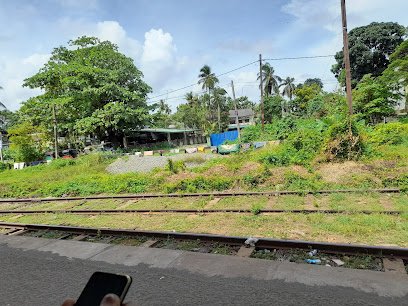
Unmissable attractions to see
BMICH (Bandaranaike Memorial International Conference Hall)
Explore the architectural brilliance of BMICH in Colombo, a hub for international conferences and cultural events showcasing Sri Lanka's heritage.
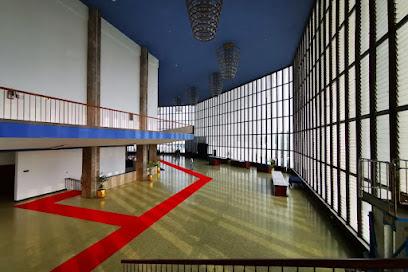
Diyatha Uyana
Discover Diyatha Uyana, a serene park and water park in Sri Jayawardenepura Kotte, perfect for relaxation, recreation, and local cultural experiences.
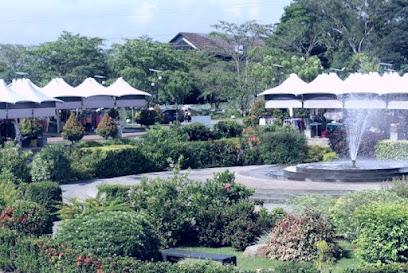
Kelaniya Raja Maha Viharaya
Explore the sacred Kelaniya Raja Maha Viharaya, a historic Buddhist temple in Peliyagoda, rich in culture and spirituality.

Galle Face Green
Explore Galle Face Green, Colombo's stunning urban park offering ocean views, lush landscapes, and a vibrant atmosphere perfect for relaxation.
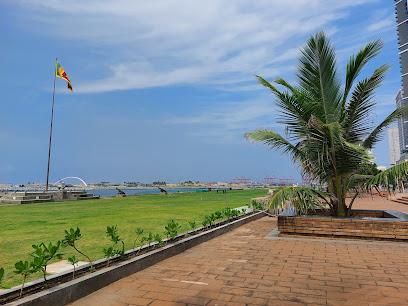
Floating Market - Pettah
Explore the Floating Market in Pettah, Colombo - a vibrant hub of culture, delicious street food, and unique shopping experiences on water.
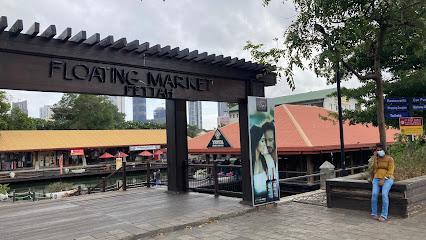
Dehiwala Zoological Gardens
Discover the vibrant wildlife and serene landscapes at Dehiwala Zoological Gardens, a top destination for nature lovers in Sri Lanka.
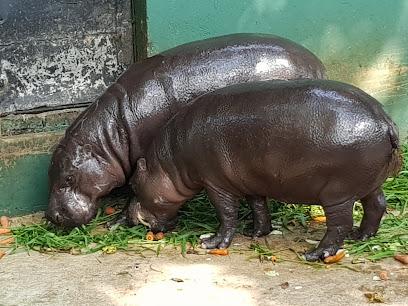
Gangaramaya Temple
Experience the spiritual beauty and rich cultural heritage of Gangaramaya Temple, a must-visit Buddhist sanctuary in the heart of Colombo.
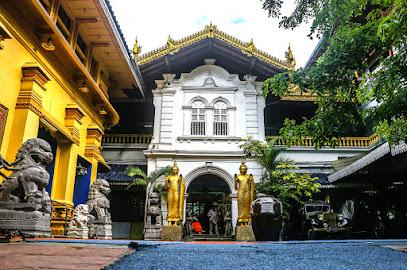
Independence Square
Explore Independence Square, a historical landmark in Colombo, where Sri Lanka's rich heritage meets stunning architecture amidst serene gardens.
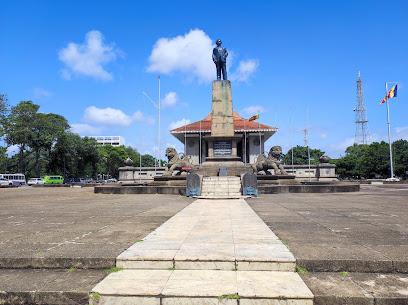
Bellanwila Rajamaha Viharaya
Explore the spiritual serenity and rich heritage of Bellanwila Rajamaha Viharaya, a captivating Buddhist temple in Boralesgamuwa, Sri Lanka.
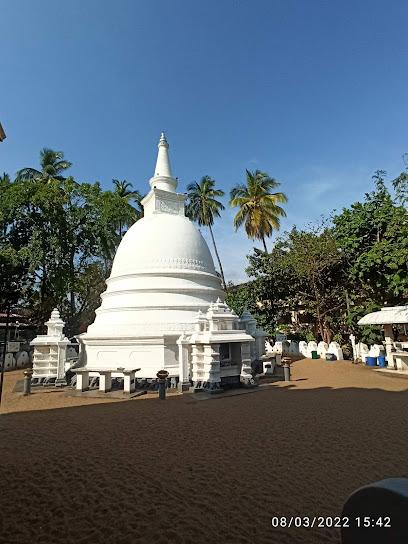
Nelum Pokuna Theatre
Discover the heart of Sri Lankan culture at Nelum Pokuna Theatre, where performing arts come alive in a stunning architectural setting.
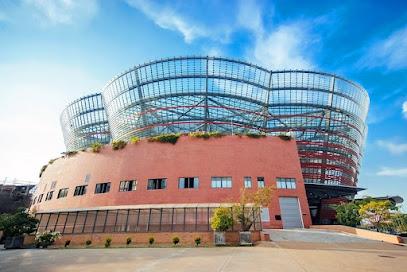
Colombo Lotus Tower
Explore the breathtaking views and cultural significance of the Colombo Lotus Tower, a modern architectural marvel in Sri Lanka.

Seethawaka Wet Zone Botanical Gardens
Explore the lush landscapes and vibrant flora of Seethawaka Wet Zone Botanical Gardens, a must-visit tourist attraction in Labugama, Sri Lanka.
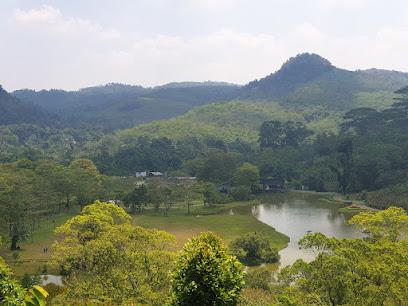
Beddagana Wetland Park
Explore the serene Beddagana Wetland Park, a lush haven of biodiversity in Sri Jayawardenepura Kotte, perfect for nature lovers and peaceful getaways.
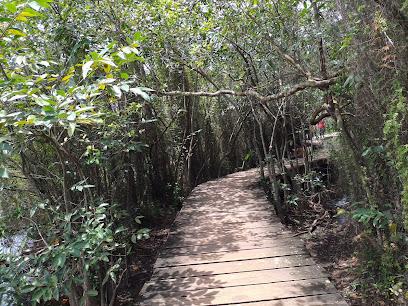
St. Anthony's Shrine, Kochchikade.
Explore the architectural beauty and spiritual depth of St. Anthony's Shrine, a must-visit Catholic church in Colombo, Sri Lanka.
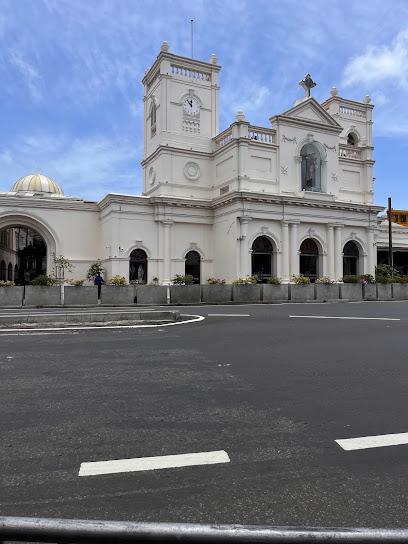
Colombo National Museum
Explore Sri Lanka's rich cultural heritage at the Colombo National Museum, where history comes alive through captivating exhibits and artifacts.
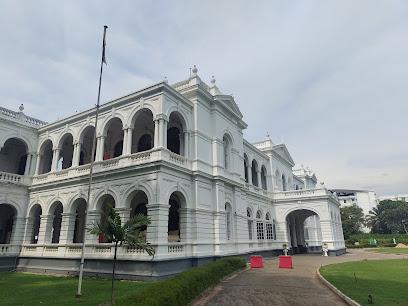
Essential places to dine
Sameeha Family Restaurant
Discover delicious family-friendly dining at Sameeha Family Restaurant in Negombo, offering a variety of local and international dishes in a warm atmosphere.
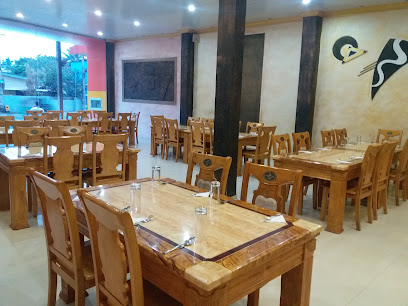
Sasha Food Court
Discover a diverse array of delicious local and international cuisines at Sasha Food Court in Negombo - where flavors come alive!
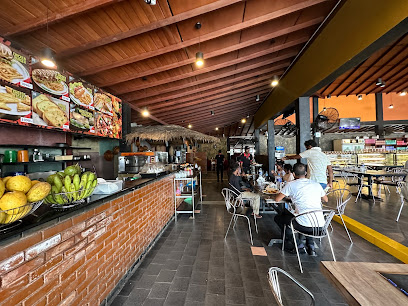
Lords Restaurant Complex
Experience exquisite Asian cuisine intertwined with art and relaxation at Lords Restaurant Complex in Negombo.
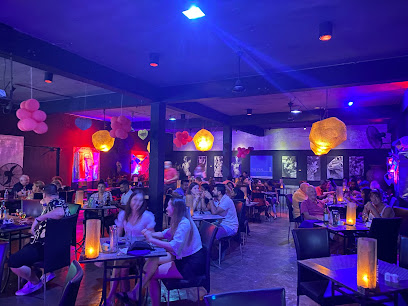
Rodeo Pub & Restaurant
Experience the vibrant flavors of Sri Lanka at Rodeo Pub & Restaurant in Negombo - where great food meets lively entertainment!
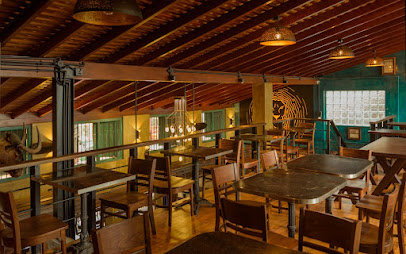
King Coconut Family Restaurant
Experience authentic Sri Lankan cuisine at King Coconut Family Restaurant in Negombo – where flavor meets hospitality.
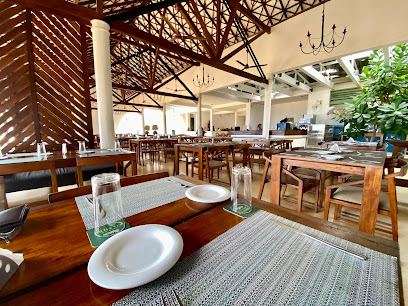
Jude Restaurant (upstairs)
Discover Jude Restaurant in Negombo - where fresh seafood meets authentic Sri Lankan flavors in a picturesque coastal setting.
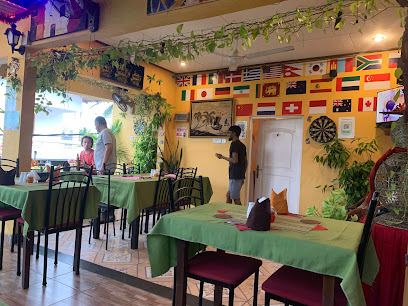
Prego Italian Restaurant
Discover authentic Northern Italian cuisine at Prego Italian Restaurant in Negombo – where every meal is a delightful journey to Italy.
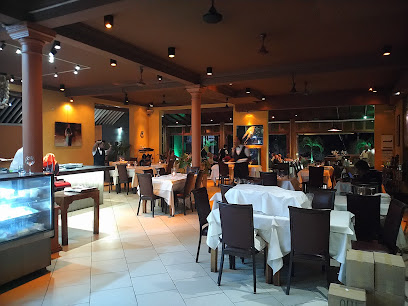
The Grand Gastrobar
Discover the essence of Sri Lankan cuisine at The Grand Gastrobar in Negombo - where tradition meets modern culinary flair.
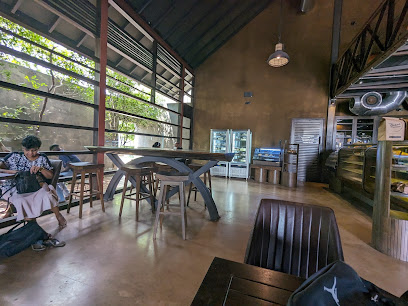
Toro Pub & Restaurant
Discover the vibrant Toro Pub & Restaurant in Negombo - where local flavors meet lively entertainment in an inviting atmosphere.
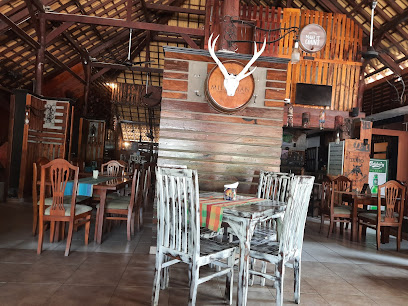
TukTuk Wine & Dine
Discover the vibrant flavors at TukTuk Wine & Dine in Negombo – where local cuisine meets international flair.
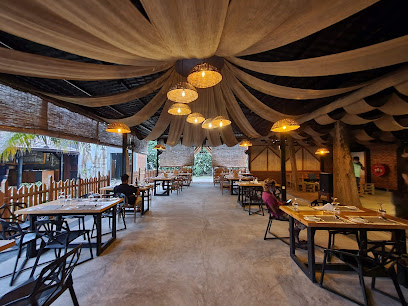
Sea View Restaurant
Experience exquisite seafood dining with breathtaking ocean views at Sea View Restaurant in Negombo.
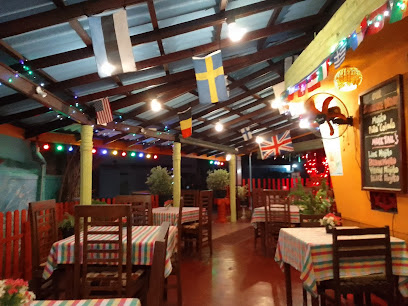
Choys negombo
Experience authentic Sri Lankan cuisine at Choys Negombo, where every dish tells a story of flavor and tradition.
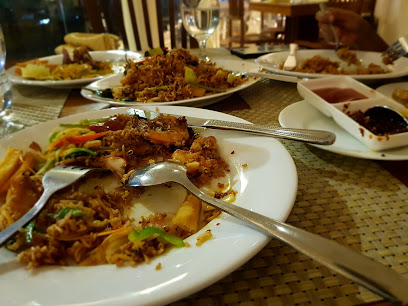
Machan Negombo Beach
Experience delicious cuisine with breathtaking ocean views at Machan Negombo Beach – your ultimate dining destination in Sri Lanka.
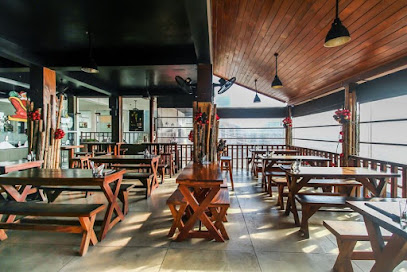
Dolce Vita Coffee Shop & Restaurant
Experience the charm of Italian dining at Dolce Vita Coffee Shop & Restaurant in Negombo—where exquisite flavors meet local hospitality.
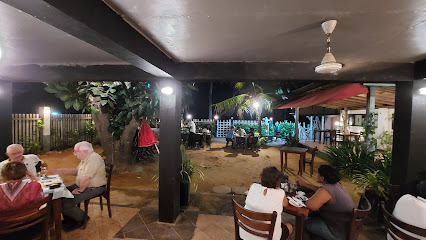
White house seafood restaurant
Experience the finest seafood dishes at White House Seafood Restaurant in Negombo, where freshness meets tradition in every bite.
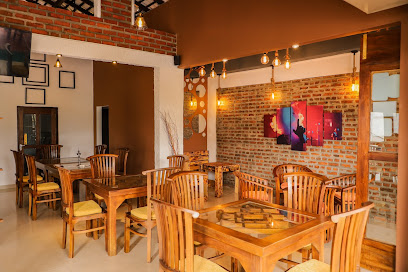
Markets, malls and hidden boutiques
Sriyani Dress Point
Discover the vibrant styles of Sriyani Dress Point, a top shopping mall in Negombo, perfect for tourists seeking local fashion and unique finds.
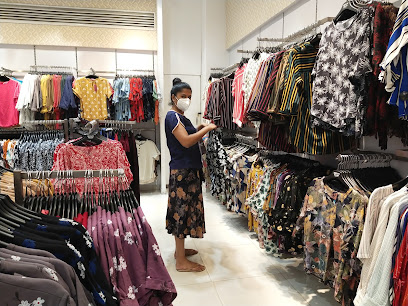
NOLIMIT
Discover stylish clothing at NOLIMIT in Negombo – a shopper's paradise with a wide selection for the whole family.
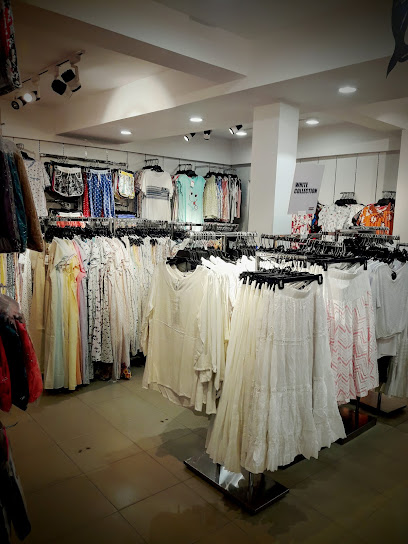
CIB Shopping Center - Negombo
Discover the vibrant shopping experience at CIB Shopping Center in Negombo, featuring an array of clothing stores and local boutiques.
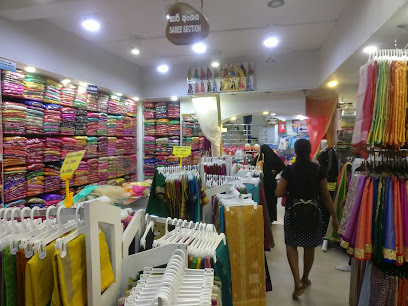
Fashion Bug
Explore a wide variety of stylish and affordable clothing at Fashion Bug in Negombo, a must-visit shopping destination for fashion enthusiasts.
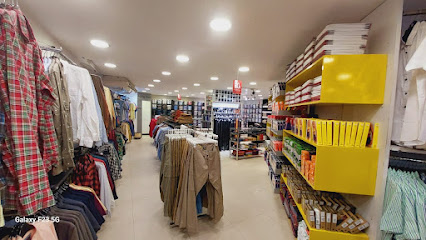
Rich Look
Explore the vibrant world of fashion at Rich Look in Negombo, where modern style meets traditional Sri Lankan craftsmanship.
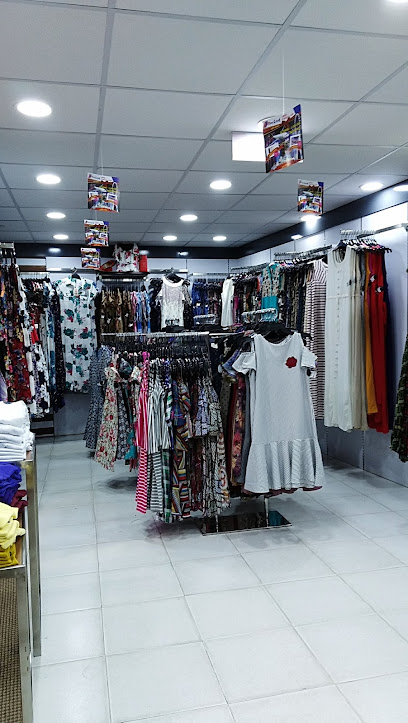
Mora Esclusivo
Discover unique fashion and local style at Mora Esclusivo, the premier clothing store in Negombo, Sri Lanka.
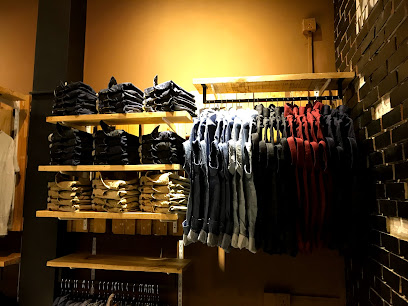
D-Blaq Negombo
Explore contemporary men's fashion at D-Blaq Negombo, where unique style meets quality craftsmanship in a vibrant shopping atmosphere.
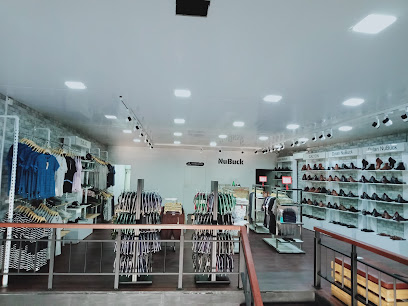
SUN SHINE SUPERMARKET
Explore a diverse selection of souvenirs, local delicacies, and everyday essentials at Sun Shine Supermarket in Negombo, Sri Lanka.
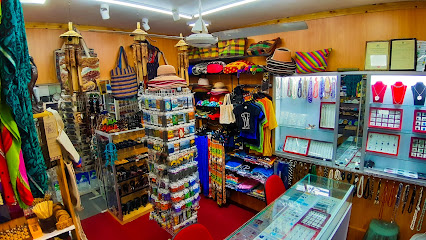
Kalpana’s Batik & Souvenirs
Discover the vibrant world of Sri Lankan batik and unique handicrafts at Kalpana's Batik & Souvenirs in Negombo.
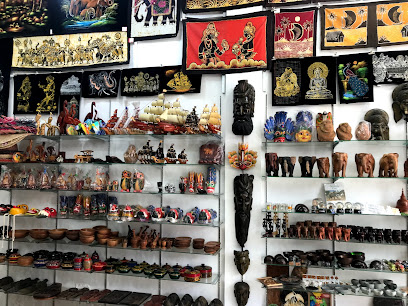
LUV SL
Discover the essence of Sri Lankan fashion at LUV SL, a trendy clothing store in Negombo offering stylish apparel and exceptional service.
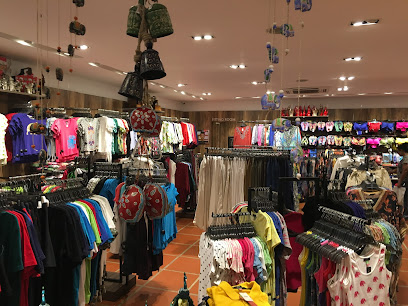
Vidumini Fashion
Discover trendy apparel and unique accessories at Vidumini Fashion, a premier clothing store in the heart of Negombo, Sri Lanka.
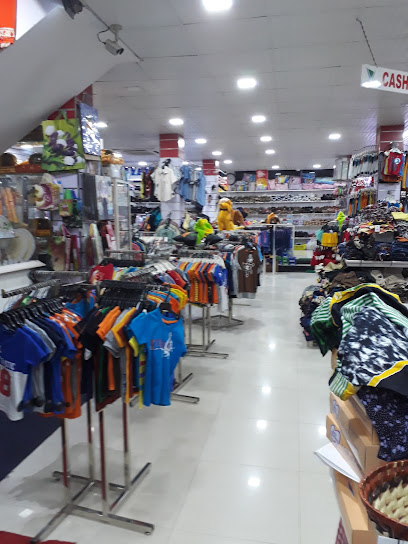
Rare
Explore the vibrant fashion scene at Rare, a must-visit clothing store in Negombo offering unique styles and accessories.
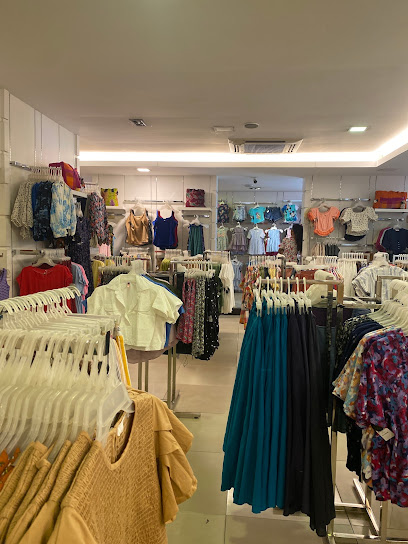
Akee
Discover the essence of Sri Lankan fashion at Akee, a premier clothing store in Negombo offering unique styles for every occasion.
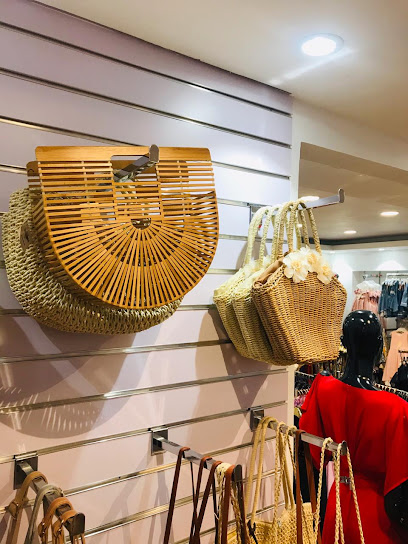
Spring & Summer - Negombo
Discover the latest trends in women's fashion at Spring & Summer, a stylish boutique in the heart of Negombo, offering unique styles and a vibrant shopping atmosphere.
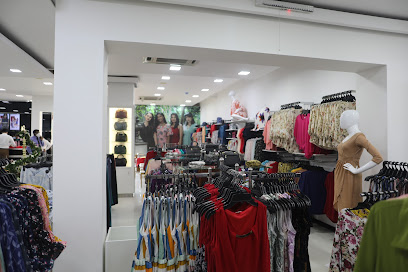
La Vivente Negombo
Explore the vibrant fashion scene at La Vivente Negombo, offering unique clothing that reflects the rich culture of Sri Lanka.

Essential bars & hidden hideouts
Lords Restaurant Complex
Discover the culinary artistry and vibrant atmosphere at Lords Restaurant Complex in Negombo, where Asian flavors meet local culture.
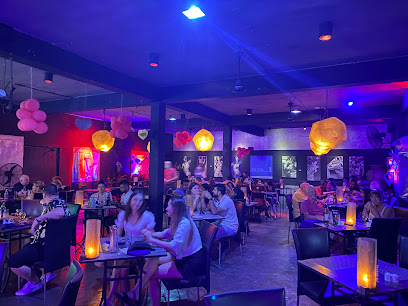
Rodeo Pub & Restaurant
Discover the lively Rodeo Pub & Restaurant in Negombo, where delicious food meets vibrant entertainment for an unforgettable experience.
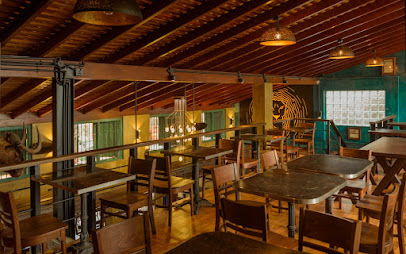
Toro Pub & Restaurant
Discover the vibrant culinary scene at Toro Pub & Restaurant, where authentic Sri Lankan flavors meet a lively atmosphere in Negombo.
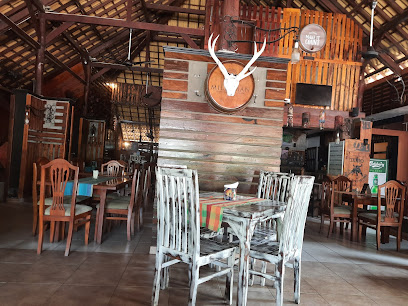
Machan Negombo
Discover the vibrant charm of Machan Negombo, a lively pub offering local flavors, refreshing drinks, and a memorable atmosphere in the heart of Sri Lanka.
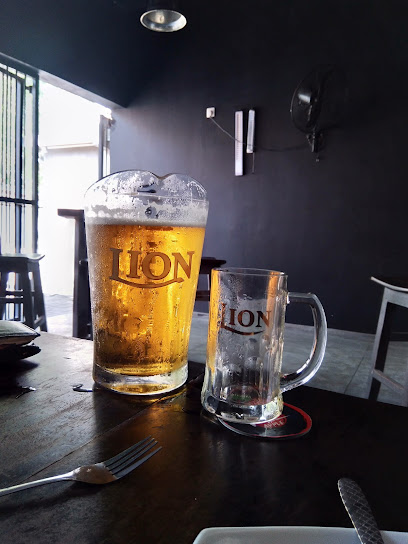
The Port Restaurant & Beach Bar(Sea Food)
Discover the ultimate seafood dining experience at The Port Restaurant & Beach Bar in Negombo, where fresh flavors meet stunning ocean views.
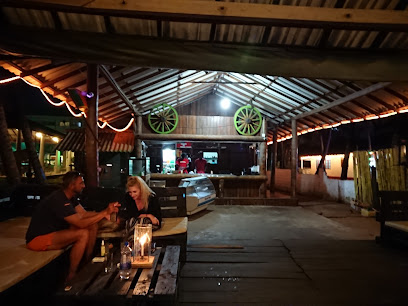
M & M juice bar
Discover the vibrant flavors of Sri Lanka at M & M Juice Bar in Negombo, where fresh juices and a friendly atmosphere await you.
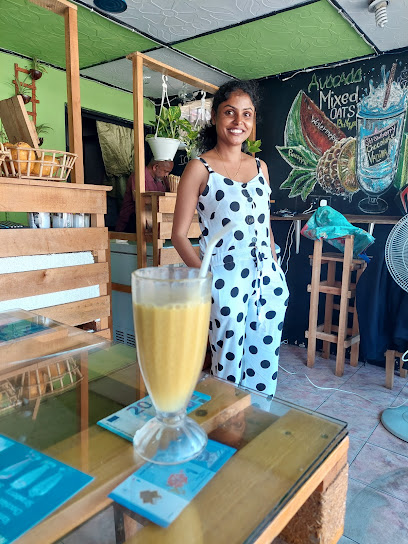
Coronation Restaurant & Bar
Discover delicious local and international cuisine at Coronation Restaurant & Bar, a must-visit dining destination in the heart of Negombo.
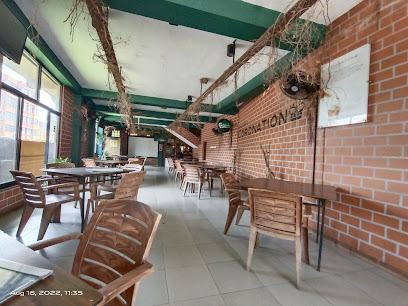
Sundown Rooftop Bar
Experience breathtaking ocean views and vibrant sunsets at Sundown Rooftop Bar, Negombo's premier destination for relaxation and good vibes.
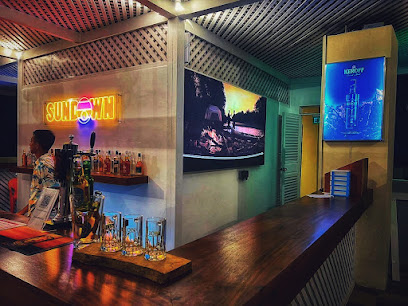
Dolly Dolly PUB Restaurant
Discover the lively atmosphere and diverse menu at Dolly Dolly PUB Restaurant in Negombo, perfect for savoring local and international flavors.
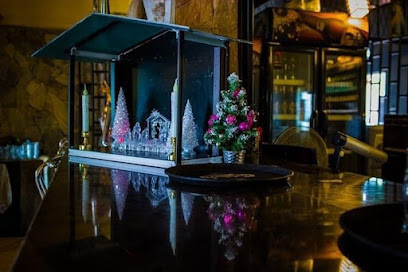
The Sky Track Lounge & Bar - Regal Réseau
Discover the vibrant atmosphere and stunning views at The Sky Track Lounge & Bar in Negombo, Sri Lanka.
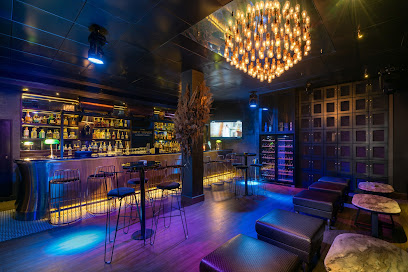
The Barrel House Negombo
Discover the vibrant atmosphere of The Barrel House Negombo, where local flavors and friendly faces create an unforgettable pub experience.
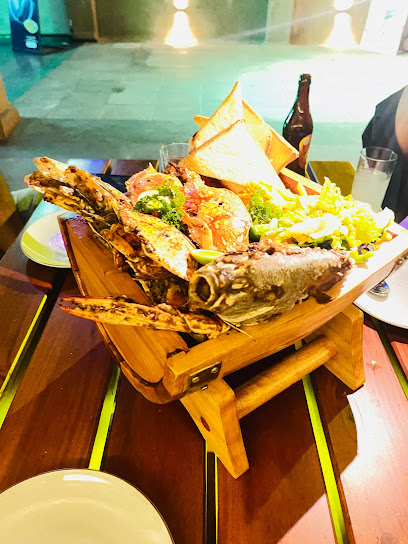
Escobar
Experience the vibrant nightlife of Negombo at Escobar, a lively bar known for its delicious drinks and inviting atmosphere.
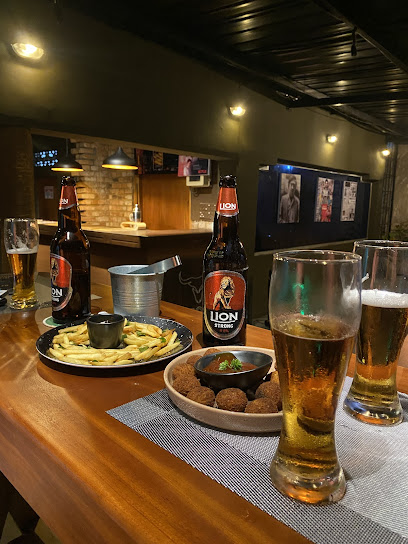
Juice Bar
Experience the tropical flavors at Juice Bar in Negombo, where refreshing juices and a vibrant atmosphere await every traveler.
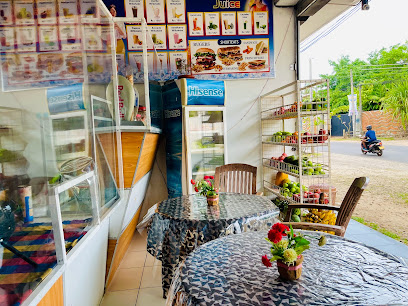
Center Point Grill & Bar
Discover the vibrant flavors of Negombo at Center Point Grill & Bar, where delicious meals and stunning views create unforgettable experiences.
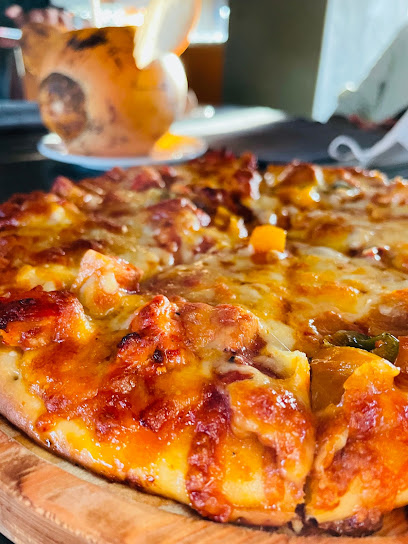
Local Phrases
-
- Helloආයුබෝවන්
[Ayubowan] - Goodbyeසුභ උදෑසනක්
[Suba Udesanak] - Yesඔව්
[Oo] - Noනැත
[Neth] - Please/You're welcomeකරනවා / ආයුබෝවන්
[Karana wa / Ayubowan] - Thank youඔබට ස්තූතියි
[Obata Sthuthiyi] - Excuse me/Sorryකරලා හරි
[Karala Hari] - How are you?ඔයා කොහොමද?
[Oya kohomada?] - Fine. And you?හොඳ වෙනවා. ඔයා?
[Hondha wenawa. Oya?] - Do you speak English?ඔයාට ඉංග්රීසි කතා කරනවාද?
[Oyata Ingirisi katha karanavadha?] - I don't understandමම දරුවනොහෙත්
[Mama daruwanohethe]
- Helloආයුබෝවන්
-
- I'd like to see the menu, pleaseකරුණාකර මෙනු බලන්න
[Karunakara menu balanna] - I don't eat meatමම මස් කන්නා නෑ
[Mama mas kanna na] - Cheers!සුභග්යානයෙන්!
[Subha gayanaye] - I would like to pay, pleaseකරුණාකර ගෙවාගෙන ගියාට
[Karunakara gewanagen giyata]
- I'd like to see the menu, pleaseකරුණාකර මෙනු බලන්න
-
- Help!උකුලෙන්!
[Ukulen] - Go away!මියල්ලා!
[Miyalla] - Call the Police!පොලිස් කොල්ලන්න!
[Polis kollanna] - Call a doctor!වෛරයක් කොල්ලන්න!
[Vaidyak kollanna] - I'm lostමම පොලොස්ටරත්මකාරවල්
[Mama polostartmakarawal] - I'm illමම අසාරම්වෙල්
[Mama asaramwel]
- Help!උකුලෙන්!
-
- I'd like to buy...මම හැමදේම මිලදී වෙන්නේ
[Mama hemadema miladi wenne] - I'm just lookingමම දැන්කමේ වඩා
[Mama danakame wada] - How much is it?එය කොහොමද?
[Eya kohomada?] - That's too expensiveඑය ඉතා ගානේ
[Eya itha gane] - Can you lower the price?බල අඩු කරනවාද?
[Bala adu karanavadha?]
- I'd like to buy...මම හැමදේම මිලදී වෙන්නේ
-
- What time is it?වේලාව කුමට ද?
[Welaya kumata da?] - It's one o'clockඑක් වේලාව ය
[Eka welaya ya] - Half past (10)බත් පස් පද කොල්ලා
[Batha pasa pada kolla] - Morningපෙරවරු
[Perawaru] - Afternoonපසළොස්
[Pasalos] - Eveningසවස
[Sawasa] - Yesterdayඊයේ
[Iye] - Todayඅද
[Ada] - Tomorrowහෙට
[Heta] - 1එක
[Eka] - 2දෙක
[Deka] - 3තුන
[Thuna] - 4හතලි
[Hathali] - 5පහ
[Paha] - 6හය
[Haya] - 7හත
[Hatha] - 8අට
[Ata] - 9නය
[Naya] - 10දහය
[Dahaya]
- What time is it?වේලාව කුමට ද?
-
- Where's a/the...?කොහෙද?
[Koheda?] - What's the address?ලිපාකය කුමට ය?
[Lipakaya kumata ya?] - Can you show me (on the map)?මම ප්රථමයෙන් දක්වනවාද?
[Mama prathamaye dakwanavadha?] - When's the next (bus)?ඊළඟට කොළොන්නේ?
[Ilangata kolonne?] - A ticket (to ....)ප්රාගයක් (.... වෙත)
[Pragayak (.... wetha)]
- Where's a/the...?කොහෙද?
History of Negombo
-
Negombo's history dates back to ancient times, with evidence suggesting that it was a hub for the island's indigenous people. The coastal location made it a favorable spot for early settlements, fishing communities, and trade.
-
In the early 16th century, Portuguese explorers arrived in Negombo. They quickly established control over the area, attracted by its strategic location and lucrative cinnamon trade. The Portuguese influence shaped much of the town's early colonial architecture and laid the groundwork for its Catholic heritage.
-
By the mid-17th century, the Dutch had taken over Negombo from the Portuguese. They fortified the town by building the Dutch Fort in 1672, remnants of which still stand today. The Dutch also developed the extensive canal system, known as the Hamilton Canal, which was used for transportation and irrigation.
-
With the decline of Dutch power, the British took control of Negombo in the early 19th century. Under British rule, Negombo continued to thrive as a trade center. The British improved infrastructure, including roads and railways, facilitating better connectivity with the rest of Sri Lanka.
-
After Sri Lanka gained independence in 1948, Negombo grew rapidly, balancing its colonial heritage with modern development. The town has since evolved into a vibrant coastal city, known for its bustling fish markets, beautiful beaches, and rich cultural tapestry.
-
Negombo is often referred to as 'Little Rome' due to its significant Roman Catholic population and abundance of churches. The town is a melting pot of cultures with Buddhist, Hindu, and Muslim communities living harmoniously. Festivals and religious celebrations are a testament to this rich cultural diversity.
-
Fishing has always been at the heart of Negombo's economy and way of life. The town's lagoon and coastal waters are teeming with marine life, providing livelihoods for generations. The bustling fish market, one of the largest in Sri Lanka, is a must-visit for anyone wanting to experience the local culture.
Negombo Essentials
-
Negombo is easily accessible via Bandaranaike International Airport, which is located approximately 10 kilometers from the city center. From the airport, you can take a taxi, which typically takes around 20 minutes. Alternatively, there are bus services and hotel shuttles that can transport you to Negombo.
-
Negombo offers various modes of transportation. Tuk-tuks are a popular and inexpensive way to get around the city. Buses are available for longer distances, though they can be crowded. Taxis are also widely available and can be booked via apps or hailed on the street. For a more leisurely experience, consider renting a bicycle to explore the coastal areas.
-
The official currency in Sri Lanka is the Sri Lankan Rupee (LKR). Credit and debit cards are widely accepted in hotels, restaurants, and larger shops. However, it is advisable to carry cash for smaller establishments and market purchases. ATMs are readily available throughout Negombo, particularly in the city center and tourist areas.
-
Negombo is generally a safe city for tourists, but it is always best to take standard precautions. Avoid walking alone at night in secluded areas. Some neighborhoods, particularly around the bus station and certain beachfront areas, have higher instances of petty crime targeting tourists, such as pickpocketing. Always keep an eye on your personal belongings.
-
In case of an emergency, dial 119 for police assistance and 110 for medical emergencies. The Negombo General Hospital is the nearest major medical facility. It is advisable to have travel insurance that covers medical emergencies. Pharmacies are available for minor health issues, and many pharmacists speak English.
-
Fashion: Do dress modestly, especially when visiting religious sites. Avoid wearing revealing clothing. Religion: Do respect local customs and traditions. Always remove your shoes and cover your head when entering temples. Public Transport: Do be courteous and give up your seat to elderly passengers. Don't eat or drink on public transport. Greetings: Do greet people with a smile and a slight bow or the traditional 'Ayubowan' gesture. Eating & Drinking: Do try local seafood and traditional Sri Lankan dishes. Don't refuse food or drink offerings, as it is considered impolite.
-
To experience Negombo like a local, visit the daily fish market early in the morning to see the fresh catch being brought in. Take a boat trip through the Negombo Lagoon for a unique view of the mangroves and local wildlife. Engage with locals, as they are often friendly and willing to share stories and tips about the best places to visit.
Trending Landmark in Negombo
-
Sameeha Family Restaurant
-
Sentido Heritance Negombo
-
Sasha Food Court
-
Negombo Beach Park
-
Jetwing Lagoon
-
Amagi Aria
-
Dinemore - Negombo
-
Sriyani Dress Point
-
St. Mary's Church
-
Angurukaramulla Temple (Bodhirajaramaya)
-
Rukmani Devi Park
-
Negombo Bus Terminal/Bus Stand
-
CIB Shopping Center - Negombo
-
St. Sebastian's Church, Katuwapitiya | සාන්ත සෙබස්තියන් දේවස්ථානය - කටුවාපිටිය
-
Negombo Railway Station
Nearby Cities to Negombo
-
Things To Do in Colombo
-
Things To Do in Kandy
-
Things To Do in Bentota
-
Things To Do in Nuwara Eliya
-
Things To Do in Hikkaduwa
-
Things To Do in Sigiriya
-
Things To Do in Ella
-
Things To Do in Galle
-
Things To Do in Anuradhapura
-
Things To Do in Unawatuna
-
Things To Do in Polonnaruwa
-
Things To Do in Mirissa
-
Things To Do in Matara
-
Things To Do in Trincomalee
-
Things To Do in Jaffna










